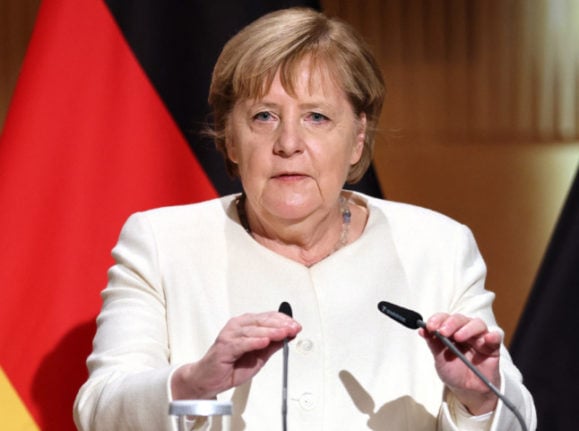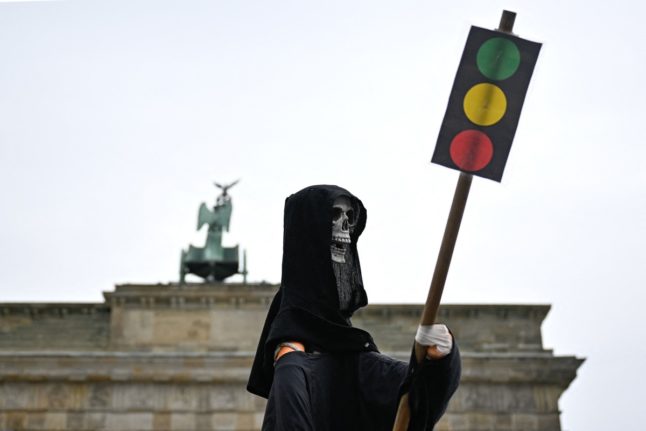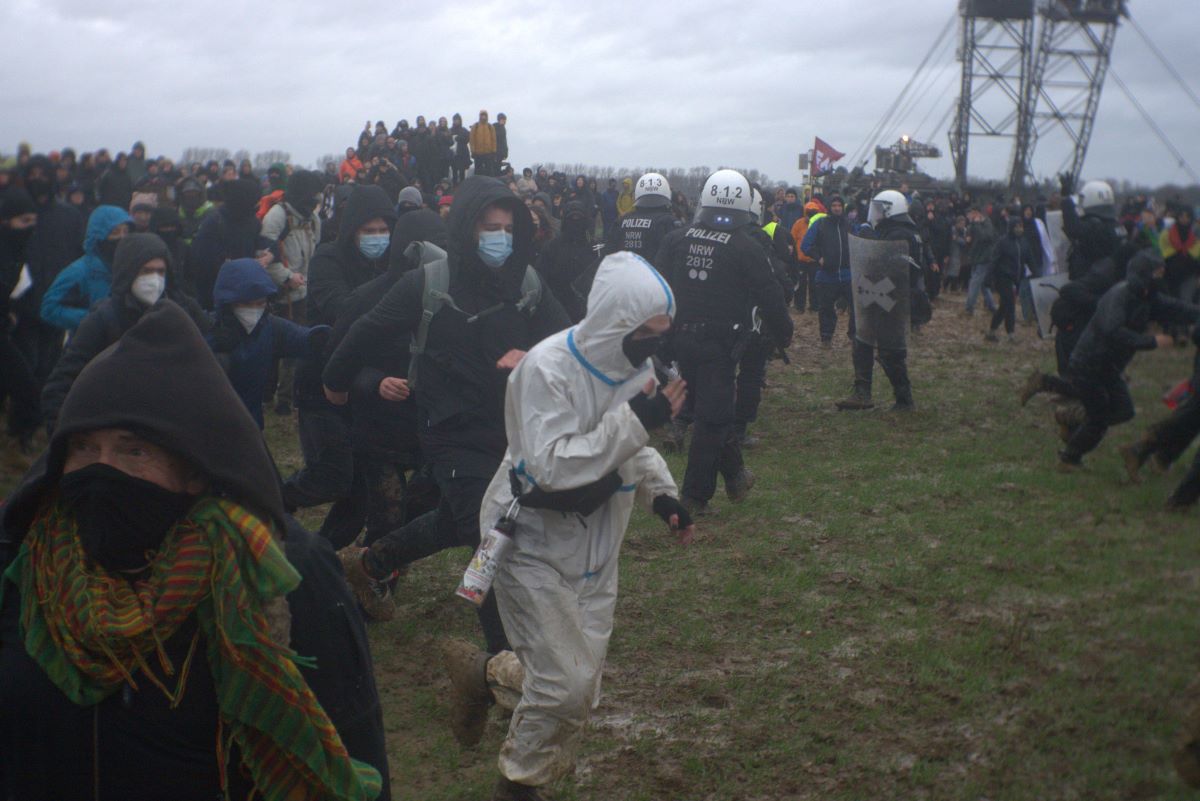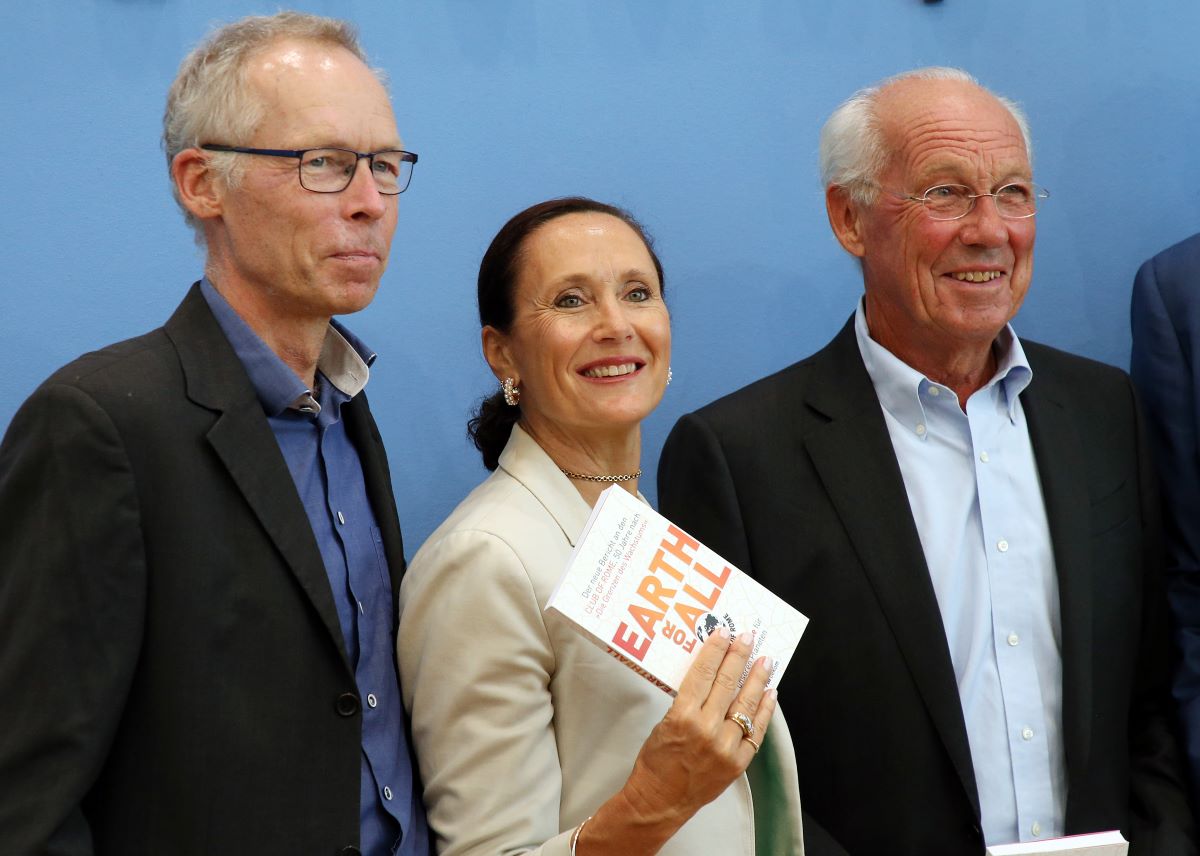The centre-left Social Democrats (SPD) and their candidate Olaf Scholz narrowly won last Sunday’s vote on 25.7 percent. Merkel’s conservative CDU-CSU alliance plunged to an all-time low of 24.1 percent, as she prepares to leave the stage after 16 years in power.
While the result leaves the SPD in pole position to form a government, conservative leader Armin Laschet has also vowed to begin coalition talks in a last-ditch effort to keep the ailing CDU-CSU in power.
Speaking in front of party leaders at celebrations in Halle to mark German reunification in 1990, Merkel said the country once again had the opportunity to “shape” its next chapter.
“We can argue over exactly how in the future, but we know that the answer is in our hands, that we have to listen and speak with each other, that we have differences, but above all things in common,” Merkel said, in a clear reference to negotiations at hand.
In the complex calculations for a coalition, the make-up of the next German government essentially hinges on which of the two main parties can persuade the Greens and the liberal FDP to sign up for a partnership.
READ ALSO: German parties meet as coalition haggling begins
The SPD held talks with the FDP, described as “very constructive” by the Social Democrats’ general secretary Lars Klingbeil in a statement afterwards.
His FDP counterpart Volker Wissing said the parties’ “substantive positions on important points differ”, but also stressed that a reforming government needed to be formed to take on Germany’s biggest challenges.
The SPD subsequently had talks with the Greens, while their rivals, the CDU-CSU, also met with the FDP on Sunday evening. They will speak to the Greens on Tuesday.
‘Historic defeat’
The Social Democrats have discovered new momentum since snatching the close election win.
A poll for the Bild am Sonntag newspaper on Sunday showed that 28 percent of the public would vote SPD if the election were rerun, up two percent from the election itself.
The conservative bloc meanwhile lost three percentage points.
Some 76 percent of respondents said they thought Scholz should be the next German chancellor, with just 13 percent backing Laschet.

In an interview with German news magazine Der Spiegel on Friday, Scholz said it was “clear from every poll that people don’t want the (CDU-CSU) to be part of the next government.
“The election result is clear. The CDU and CSU have suffered a historic defeat and have been voted out,” he said.
The FDP party is closer politically to the CDU than the SPD, but ahead of the talks, their leader Cristian Lindner put pressure on the conservatives. In an interview with the Bild am Sonntag newspaper, Lindner called on them to clarify whether they “really” wanted to govern.
But the conservatives are not giving up, with CSU general secretary Markus Blume insisting on Friday that a conservative-led coalition had a chance.
‘Democratic accomplishments’
In what was billed as perhaps her last major speech as chancellor, Merkel on Sunday appealed to her successors to defend democracy amid the scramble to form a government.
“We sometimes take our democratic accomplishments too lightly,” Germany’s long-standing leader said in her speech.
She called on the public to “reject radicalisation”, while referring to a neo-Nazi attack on a synagogue in the city where she was speaking two years earlier.
“Diversity and difference” were not threats to society, Merkel added, as Germany had shown in the years since the fall of the Berlin Wall.
The veteran politician, who lived in the communist east before reunification, was visibly moved as she described her own struggles with prejudice and called for more “respect” for the personal histories of east Germans.
READ ALSO: What you need to know about Germany’s upcoming coalition talks
READ ALSO: ‘We lost’: CDU’s Laschet faces calls to resign over German election disaster





 Please whitelist us to continue reading.
Please whitelist us to continue reading.
Member comments